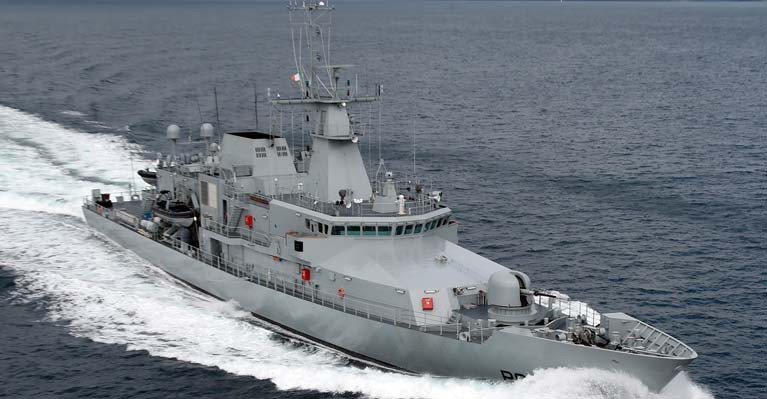The Naval Service patrol ship LÉ WB Yeats has berthed in Galway for potential use as a testing facility for the Covid-19 virus writes Lorna Siggins
The ship is one of three Naval Service vessels requested for use by the Health Service Executive (HSE), as plans are underway to roll out 34 testing facilities across the State.
The vessel under command of Lieut Cdr Martin Tarrant arrived into Galway docks on Tuesday night and was due to be visited by HSE staff yesterday to conduct a risk assessment.
The LÉ Samuel Beckett has already been deployed to Dublin for similar use, and another ship is on standby in Haulbowline naval base for location in Cork.
Naval Service experience of testing for infectious illnesses during migrant rescue in the Mediterranean influenced the decision to make ships available as support to the HSE.
The Defence Forces Press Office said the ships were deployed “to generate extra capacity for the HSE”, and it was awaiting further instructions.
It is anticipated that arrangements already in place for testing at Dublin’s Croke Park would be simulated, with marquees established onshore and the ships providing logistical support. All three cities have riverside berths which offers ease of access.
The HSE has emphasised that people should not present at the various centres without a scheduled appointment, following referral by GPs if necessary after an initial assessment by phone.
.Those suffering from symptoms of Covid-19 (typically dry cough and fever) should ring their GP who will arrange a test if deemed necessary.
The LE WB Yeats was commissioned in 2016, first deployed to the Mediterranean in 2017, and is twinned with Galway city.
Galway harbourmaster Capt Brian Sheridan said that the move further emphasised the critical role of ports in providing a response to the current situation.
He confirmed that he and his port pilots and other key staff will be seeking early tests for the virus, being among a group of Port of Galway staff who are key to ensuring supply chains are kept open.
Already, a number of measures have been taken by ports including Galway to comply with World Health Organisation control guidelines for Covid-19 at sea. Capt Sheridan confirmed that one of the measures includes cancelling all shore leave for visiting ships.
Vessels have been asked to supply certification of medical compliance before berthing, and to ensure all areas onboard are thoroughly sanitised.
Communication with pilots who have to board vessels to provide navigation into port must also comply with social distancing measures, he said.
“These measures apply to all our staff – port pilots and crew who have to board ships, dock gatemen, crane drivers – and Port of Galway staff who can work from home are doing so,” Capt Sheridan said.
Shipping schedules will continue as normal, he said. The Port of Galway has also offered a ten-acre property in the city to the HSE for the location of field hospital facilities if required, he said.


























































